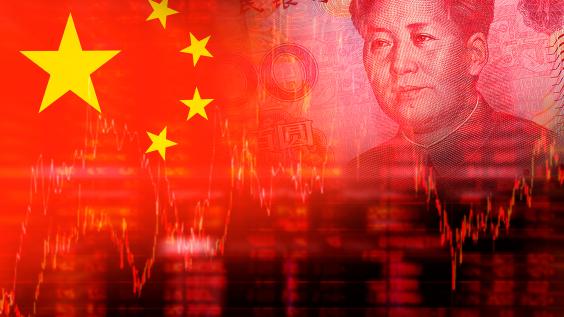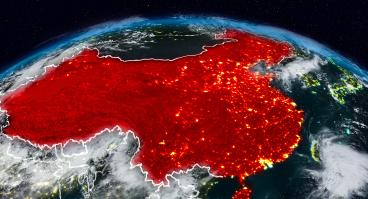Beyond US Unilateralism: Rethinking the Response to China’s Trade Practices

Table of Contents
Author(s)
Share this Publication
- Print This Publication
- Cite This Publication Copy Citation
Simon Lester, “Beyond US Unilateralism: Rethinking the Response to China’s Trade Practices” (Houston: Rice University’s Baker Institute for Public Policy, May 29, 2024), https://doi.org/10.25613/C61F-H031.
Getting Tough With China
Conventional wisdom in Washington policy circles is that the Trump administration got tough on China by imposing tariffs and that the Biden administration has maintained that toughness, for the most part. For example, the Biden administration’s recently completed review of the Trump administration’s tariffs kept existing tariffs in place and added some additional tariffs on new products.
However, this narrative misreads the political reality: In fact, U.S. imposition of unilateral tariffs gives China political cover to respond with accusations of “protectionism” and retaliatory measures of its own. The tougher, and more effective, strategy would be to challenge the core Chinese policies that distort international trade by filing complaints against China at the World Trade Organization (WTO).
The WTO Versus Section 301
A brief history of recent U.S. trade policy toward China illustrates how the U.S. went down the wrong path. In 2001, as China was about to join the WTO, U.S. foreign policy conversations were focused on various concerns related to China. At that moment, it seemed likely that Chinese trade practices, human rights abuses, and security threats would be a top priority. After 9/11, however, attention shifted to the Middle East, and at that point, U.S. policymakers often needed Chinese consent or non-objection on foreign policy issues. Thus, the U.S. concerns with China’s behavior had to be deemphasized.
Concerns about Chinese trade practices were not ignored entirely. The U.S. and other countries filed a number of WTO complaints against China over the next 10–15 years, with reasonably effective results. But the core issue of state involvement in China’s economy was not fully addressed.
When former President Donald Trump took office, however, he shifted toward a unilateral approach. A 2018 investigation of certain Chinese trade policies and practices related to technology transfer, intellectual property, and innovation under Section 301 of the Trade Act of 1974 — which allows the Office of the United States Trade Representative to investigate unfair foreign trade practices and take action in response — led to the imposition of significant new tariffs on China.
To no one’s surprise, in retaliation China implemented new tariffs of their own. By 2020, the U.S. and China signed a bilateral trade deal, but this had a minimal impact on Chinese policies and practices. Most of the tariffs remained in place throughout the Trump administration.
When President Joe Biden came into office, there was speculation about a possible rethinking of these Section 301 tariffs. But the Biden administration’s recent review, which is mandated by the Section 301 statute, mostly kept them in place, and actually increased tariffs on certain Chinese products, such as electric vehicles.
The Failure of Unilateral Actions
What has been missing from the approach by both the Trump and Biden administrations is a strategy to push China on the core concerns with its trade policies and practices. In the report issued with its review, the Biden administration argues that the tariffs have led to a handful of Chinese policy changes, but acknowledges, “Instead of pursuing fundamental reform, the Chinese government largely took superficial measures aimed at addressing negative perceptions of its technology transfer-related acts, policies, and practices.” It further notes, “China has persisted and even become more aggressive, particularly through cyber intrusions and cybertheft, in its attempts to acquire and absorb foreign technology, which further burden or restrict U.S. commerce.”
This statement clearly indicates a U.S. policy failure. However, the Biden administration has yet to reconsider its strategy and take the logical step forward: filing complaints at the WTO. This option has worked in the past and has the potential to do so again.
China’s Broad WTO Commitments
When China joined the WTO, it made sweeping commitments that went well beyond those of other governments. For example, China agreed to “ensure that all state-owned and state-invested enterprises would make purchases and sales based solely on commercial considerations.” This is a potentially very broad commitment and could be used to challenge some of the state intervention in the Chinese economy that has led to harmful trade effects.
But WTO obligations are not self-enforcing. To bring Chinese trade policies in line with WTO rules, other governments need to file complaints under the organization’s dispute settlement system and get a ruling from a neutral group of trade experts on whether China is in compliance.
The neutrality and objectivity of the WTO’s dispute settlement system are what give it the potential to induce actual policy change. China can characterize unilateral measures — such as Section 301 tariffs or antidumping/countervailing duties — as protectionist and use this as a basis to avoid making policy changes.
By contrast, a neutral ruling from a WTO tribunal is more difficult for China to ignore or rhetorically sidestep. These rulings can also lead to WTO-authorized trade sanctions, which can have a real economic impact on Chinese economic actors — but without the political baggage of unilateralism.
The Value of WTO Complaints
Despite the potential of WTO actions here, the Biden administration has not brought any WTO complaints against China. U.S. Trade Representative Katherine Tai recently told members of Congress that past WTO complaints against China were ineffective. But that statement is belied by the evidence.
Of course, WTO complaints do not work in every case against China, just like they do not always work when brought against the U.S. or the European Union. But overall, they have been successful in pushing China to comply with its WTO obligations. While there is currently a problem with the WTO dispute settlement system because the U.S. blocked appointments of its appeals judges, compromises could be made if the Biden administration wanted to restore the full functionality of the WTO dispute settlement system and start filing complaints again.
Sometimes “toughness” is judged by attitude, but results are what matter most. It is increasingly clear that U.S. unilateralism is coming up short on effectiveness. China committed to obligations tougher than any unilateral measures, and yet successive U.S. administrations have underutilized WTO enforcement — with the Biden administration totally abandoning it.
This is a mistake. If we are serious about pushing China to play an appropriate role in the world trading system — one commensurate with its status as an “upper-middle-income country” — we should make this a priority and hold China to the obligations it agreed to.
This material may be quoted or reproduced without prior permission, provided appropriate credit is given to the author and Rice University’s Baker Institute for Public Policy. The views expressed herein are those of the individual author(s), and do not necessarily represent the views of Rice University’s Baker Institute for Public Policy.



